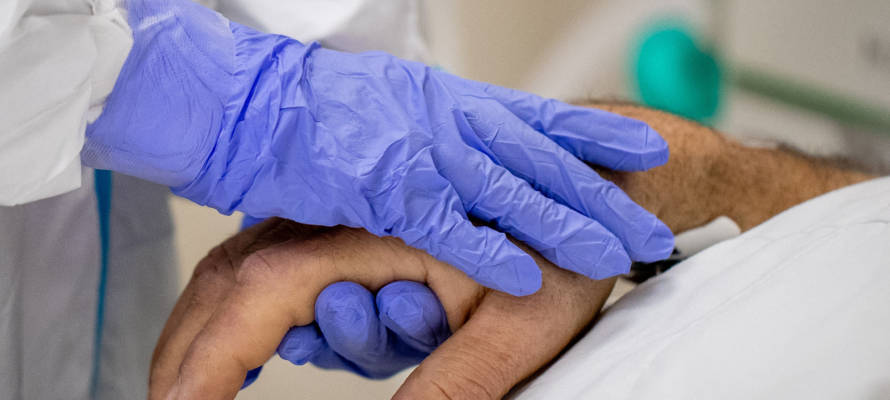Israeli researchers discovered that one in four COVID patients hospitalized with vitamin D deficiencies died.
By United With Israel Staff
A first-of-its-kind Israeli study has found that a pre-existing deficiency of vitamin D increases the severity of Covid-19.
Specifically, one in four COVID patients who were hospitalized while vitamin D deficient ended up dying, the study revealed, with a total of 26% of vitamin D-deficient coronavirus patients dying.
Conversely, only 3% of those without a deficiency who were hospitalized died.
Previous studies on the association between vitamin D levels and SARS-CoV-2 infection yielded mixed results because vitamin D levels were measured only after patients were already sick.
Researchers at the Azrieli Faculty of Medicine of Bar-Ilan University and its affiliate Galilee Medical Center assessed this correlation using low levels of vitamin D measured prior to infection and focused on disease severity.
The records of individuals with positive PCR tests for COVID-19, who were admitted between April 2020 and February 2021 to Galilee Medical Center in Nahariya, Israel were searched for vitamin D levels measured 14 to 730 days prior to the positive test.
Of 1,176 patients admitted, 253 had vitamin D levels recorded prior to COVID-19 infection.
Compared with mildly or moderately diseased patients, those with severe or critical COVID-19 disease were more likely to have severe pre-infection vitamin D deficiency with levels less than 20 nanograms per milliliter (ng/ml).
Vitamin D helps the body regulate its calcium and phosphate and keeps teeth, bones and muscles healthy. For most adults, 20 ng/ml is a normal amount of vitamin D, though the amount a person needs each day depends on their age.
The study was recently published on MedRxiv and is currently being submitted to a peer-reviewed journal.
“This study can highlight the risks of vitamin D deficiency in terms of COVID-19,” says Dr. Amiel Dror, of GMC and the Azrieli Faculty of Medicine of Bar-Ilan University, who led the study.
“Vitamin D is often associated with bone health. We’ve shown that it may also play an important role in other disease processes, such as infection.”
Prof. Michael Edelstein, Azrieli Faculty of Medicine of Bar-Ilan University: “It is still unclear why certain individuals suffer severe consequences of COVID-19 infection while others don’t. Our finding adds a new dimension to solving this lingering puzzle. In Israel, where vitamin D deficiency is common in certain population groups, this finding is particularly important.”
The authors say that the link between low vitamin D levels preceding infection and severe COVID-19 does not necessarily imply that giving vitamin D to COVID-19 patients will decrease the risk of severe disease. However, it does underscore the need to understand how to mitigate the effect of vitamin D deficiency.
